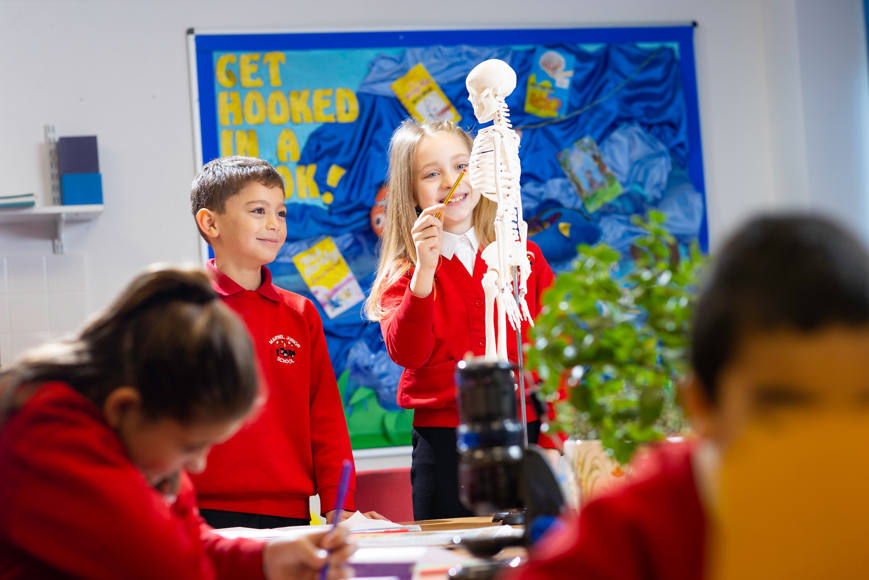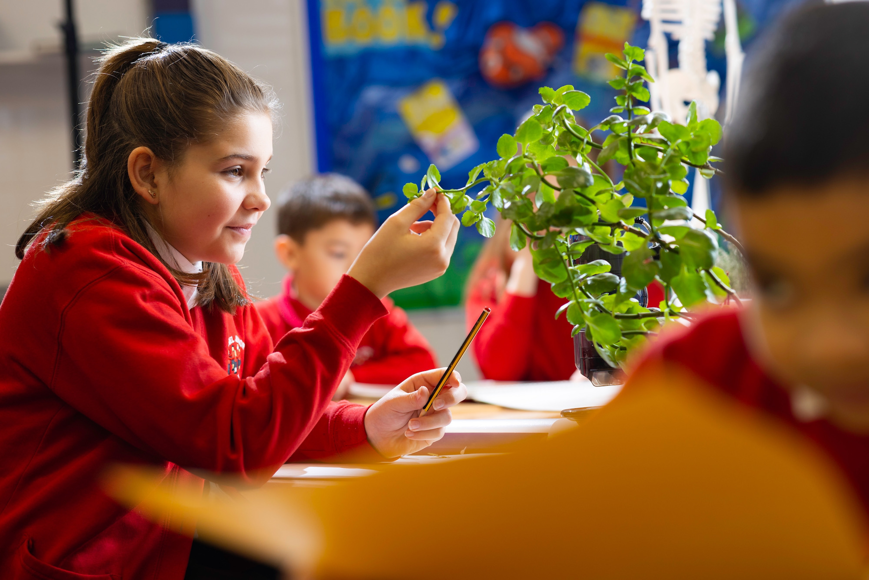Science
Whole School Progression document

Intent
The intention of the Science curriculum at Marnel Junior School is that pupils learn to recognise the importance of Science in everyday life. As one of the core subjects taught in primary schools, we ensure the teaching and learning of Science is given the prominence it requires. The intent is to ensure children have frequent access to first-hand experience to inspire; guide and motivate them to achieve their best; have an enquiring mind and develop their scientific knowledge of the world around them. Children will become confident and proficient in a variety of skills such as asking questions, gathering and recording data and drawing conclusions. It is part of our curriculum mission that children become active agents of their own learning. Our inclusion of ‘Awe and Wonder’ elements in each unit and our problem-solving approach to scientific enquiry help foster curiosity, new learning and enables them to become young scientists.

Implementation
At Marnel Junior School, we follow the National Curriculum, in line with legal requirements and our policy. Units have a clear progression of skills and knowledge to be taught and the sequence used for investigations promote their progression.
- Within each lesson we have an emphasis on the key skills they will be using and developing, as well the key scientific vocabulary, which they are encouraged to use throughout the series of lessons.
- For the teaching input for most lessons, teachers use and adapt White Rose resources, which link to the learning objective and enable teachers to model the skill of the lesson.
- High quality and effective questions, which follow Rosenshein’s principal of instruction, are used by teachers.
- Following the teaching of skills, our children are encouraged to draw their own lines of enquiry.
- Our children use the triangular method to plan their scientific lines of enquiry (investigations). The triangular method features three variables central to scientific enquiry: Controlled (same), Independent (change) and Dependent (measure). What stays the same? What will change? What will we measure? Led by an overarching investigation question.
- Other recording systems include concept cartoons, sketch graphs, diagrams, annotated doodles, observation notes and reasoning questions.
- AI-powered virtual labs provide our children with the opportunity to conduct real-world experiments that might be too dangerous, expensive, or impractical to perform in the classroom.
- Visits to science museums and places of scientific interest enhance their learning experiences.
- At the end of every lesson and / or unit there is a chance for children to show they have understood the learning, in the form an AFL Review or warm assessment.
Impact
Science at Marnel helps foster the ‘Awe and Wonder’ of the natural phenomena of the world around us and actively encourages our pupils to become young scientists.
· Teachers and pupils love and are excited by the skills and knowledge of the curriculum.
· Teachers have high expectations and good quality evidence can be presented through the triangular method and photo sheets of experiments.
· Encourage pupils to tackle scientific problems can build problem-solving and critical thinking skills, which are essential in many careers.
· Group investigations help pupils develop collaboration and communication skills
· Teaching our children about the impact of science on society and the environment inspires them to pursue careers that make a difference.
· All children use scientific vocabulary accurately and confidently and are able to apply their understanding to a context at their level.
· Assessment is used to inform the planning, ensuring prior knowledge retrieval, new knowledge delivery and the constant refinement and progression of skills
· Pupil voice is used to further develop the Science Curriculum, through questioning of pupils’ views and attitudes we continue to make lessons current and dynamic.



